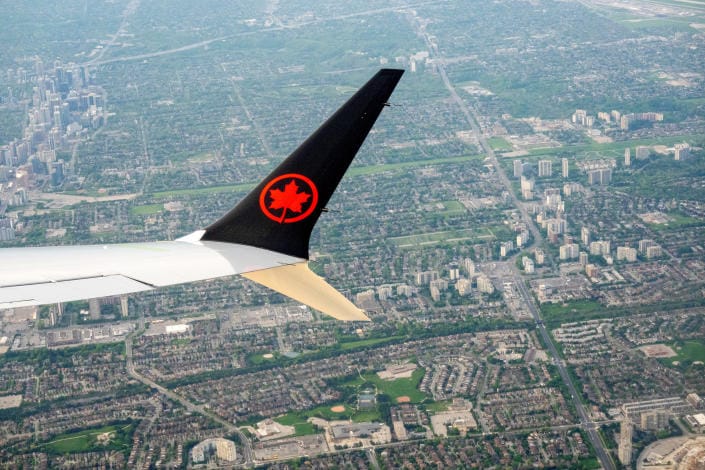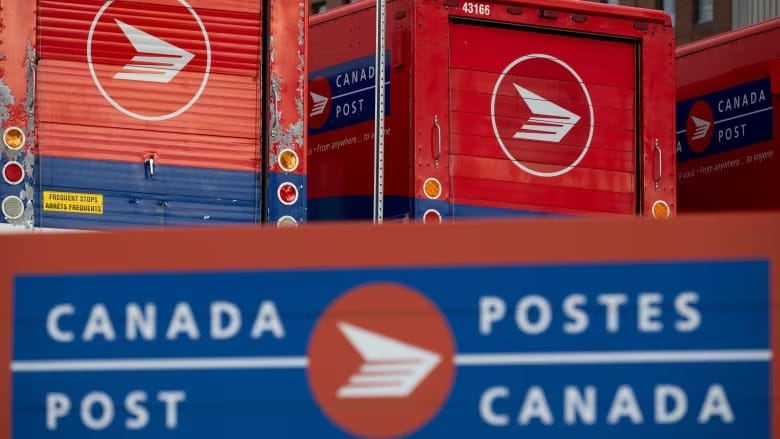Air Canada 'significantly undervalued' compared to industry peers, say analysts
Still, TD Cowen analysts Tom Fitzgerald and Helane Becker wrote in a research note on Tuesday that the airline is "taxiing towards outperformance" and "remains significantly undervalued."

As Air Canada pilots vote on whether to approve a new four-year agreement with the airline, some analysts suggest the company is currently "significantly undervalued" compared to its competitors, presenting potential opportunities for investors if the deal is ratified.
The agreement, reached just before the strike deadline, is expected to impact the airline’s upcoming quarterly results due to higher costs and the potential loss of customers who may have avoided booking with Air Canada amid strike concerns.
Despite these challenges, TD Cowen analysts Tom Fitzgerald and Helane Becker expressed optimism in a research note, stating that Air Canada is "taxiing towards outperformance" and remains "significantly undervalued." While they lowered earnings estimates for the third and fourth quarters due to anticipated pilot wage inflation and customer hesitation, they believe margins will improve and have a "buy" rating on Air Canada stock, with a target price of $19 per share.
"Air Canada remains significantly undervalued on an EV/EBITDA basis compared to other full-service carriers," the analysts wrote, adding that they expect this valuation gap to close once the pilot negotiations are settled, shareholder returns are announced, and long-haul Asia Pacific traffic continues to rebound.
Air Canada’s stock has faced challenges this year, dropping about 12 percent year-to-date, partially due to uncertainty surrounding the pilot deal. Although post-pandemic demand fueled a travel recovery in 2023, there have been broader industry concerns about a potential decline in air travel demand.
During a recent quarterly call, Air Canada CEO Michael Rousseau acknowledged the weak share price, expressing disappointment given the airline’s record performance in 2023 and the restoration of its balance sheet.
National Bank analyst Cameron Doerksen also reduced earnings expectations for the third and fourth quarters, citing "strike threat-related noise." However, he maintains an "outperform" rating on the stock, with a $22 price target. Doerksen believes that ratification of the pilot deal would remove a significant obstacle for the stock. He also noted that while yields have softened, capacity growth is expected to slow later this year, potentially benefiting Air Canada.
"Much of the yield pressure Air Canada faced this year resulted from excess industry capacity, especially to the U.S. and international sun destinations in winter, as well as European destinations in summer," Doerksen wrote. He expects capacity growth to decelerate in the fourth quarter, possibly driving yield improvement heading into 2025.
Lower jet fuel prices could also help offset the impact of the strike threat. However, there remains the risk that the pilot union may reject the tentative agreement.
Last week, Charlene Hudy, head of the Air Canada pilot union, said she would resign if members vote down the deal. The contract, finalized in late September after over a year of negotiations, averted a strike that could have caused around 670 flight cancellations and affected 110,000 passengers daily. Though the deal adds $1.9 billion in value for union members, some pilots, especially newer recruits, have criticized the persistent pay gap between recent hires and more experienced colleagues.
Doerksen estimates the total cost increase from the tentative agreement would be around 2.5 percent over four years, a figure he described as "manageable" for Air Canada. He added that ratifying the deal would remove a key uncertainty for the stock.
Fitzgerald and Becker also highlighted other potential risks, such as weakening travel demand in Canada and delays in shareholder returns.





